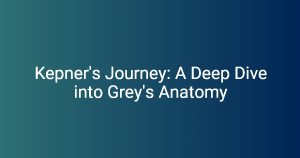In recent years, deepfake technology has gained significant traction, particularly within the vibrant realm of K-pop. Defined as techniques that utilize artificial intelligence (AI) to create realistic-looking media by superimposing existing images and videos onto source material, deepfakes introduce both creative opportunities and serious ethical concerns. The rise of K-pop deepfakes has sparked fascination among fans, alongside heated discussions around consent, privacy, and the potential for misinformation, transforming how audiences engage with their favorite idols.
Understanding Deepfake Technology
What Are Deepfakes?
At its core, a deepfake refers to digital media generated through AI and machine learning. These technologies analyze vast datasets of existing video and audio materials, enabling the creation of altered content—be it video or voice—that appears convincingly authentic. In the context of K-pop, fans might employ deepfakes for various purposes, including fan edits and humorous parodies, which bolster the idol culture’s intricate connection with their audience.
How Deepfakes Are Made
Creating a deepfake involves a series of intricate steps:
- Data Collection: Gathering numerous videos and images of K-pop stars is essential for training the AI.
- Training the AI Model: The collected data is used to train a machine learning model to recognize and reproduce likenesses.
- Generating the Final Output: The trained model then produces the altered media, resulting in a deepfake.
Common tools and software for creating deepfakes include DeepFaceLab, FaceSwap, and Zao, allowing users to generate deepfake content with relative ease.
The Rise of Kpop Deepfakes
Popularity in Fan Communities
K-pop deepfakes have become increasingly popular within fan communities. Enthusiasts find innovative ways to celebrate their idols, creating edits that enhance performances or imagine fictional scenarios. These mashups increase fan interactions and engagement through platforms like YouTube and TikTok, where edited content can spread virally, reflecting the passionate fandom’s creativity.
Kpop Idols and Their Digital Personas
K-pop idols have a carefully curated image, often managed through social media platforms. This digital persona is crafted through strategic marketing and personal branding. The significance of these constructs is amplified by the prevalence of deepfake technology, as fans often blur the line between reality and digital representation. The question of authenticity becomes critical, particularly as deepfakes can distort fans’ perceptions of their beloved idols.
Ethical Concerns Surrounding Kpop Deepfakes
Consent Issues
One of the most pressing ethical issues surrounding kpopdeepfake content is the lack of consent from K-pop idols. Many deepfake projects are created without acknowledging the idols’ personal choices and privacy. This raises concerns about individual rights and the implications for personal safety, as unauthorized use of images and likeness can lead to reputational damage and emotional distress for the artists.
Misinformation and Misrepresentation
Deepfakes also pose significant risks in terms of misinformation. The ability to create convincingly altered videos can contribute to spreading false narratives about K-pop idols. For instance, various deepfake scenarios have misrepresented star interactions, leading to misunderstandings or damaging rumors. The potential for misuse underscores the need for a critical lens when consuming media in the K-pop domain.
Exploitation and Harassment
Deepfake technology can be weaponized for malicious intents, resulting in abusive content that exploits idols. Some notorious cases of abusive deepfake videos have emerged, often portraying K-pop stars in compromising situations without their consent. This form of harassment can have profound impacts on the mental health and self-image of these idols, contributing to broader discussions about celebrity culture and the boundaries of fan expression.
Legal and Regulatory Responses
Current Legal Framework
The regulatory landscape addressing deepfakes is still evolving. In South Korea, the emergence of legal frameworks aiming to tackle deepfake-related issues is underway, albeit gradually. Globally, countries are beginning to understand the implications of deepfakes on privacy and consent, leading to landmark cases that highlight the evolving theme of digital rights.
Industry Response
Entertainment companies are taking initiatives to address the challenge posed by deepfake technology. Efforts include implementing stringent monitoring measures, educating fans on ethical content creation, and developing partnerships with tech firms to safeguard their stars effectively. These actions demonstrate a proactive approach towards ensuring the safety of K-pop idols amidst the rising tide of digital manipulation.
The Future of Kpop and Deepfake Technology
Evolving Fan Interactions
As kpopdeepfake technology continues to evolve, it will likely redefine fan interactions and content creation. The potential for immersive experiences, such as virtual concerts using deepfake technology, renders opportunities for innovative creative expressions. However, this shift also necessitates an acute awareness of ethical considerations to protect the well-being of idols and maintain the integrity of the K-pop industry.
Technological Advancements
The ongoing advancement of deepfake technology entails both exciting possibilities and serious concerns. As tools become more powerful, distinguishing between authentic and manipulated content will likely pose challenges. The development of ethical standards in AI-generated content is essential to navigate the complexities that arise in a rapidly changing digital landscape.
Conclusion
In summary, the intersection of deepfake technology and K-pop culture presents a multifaceted arena characterized by creativity, ethical challenges, and significant implications for idols and fans. As the technology continues to evolve, it remains vital to find a balance between artistic innovation and responsible content consumption. This balance will be critical in safeguarding the rights and well-being of K-pop stars while fostering an enjoyable and respectful fandom experience.
Call to Action
It’s vital for fans to engage with technology responsibly. Advocating for better protective measures for K-pop idols and respecting their consent can help maintain a positive relationship within the K-pop community. As fans, taking the initiative to understand and educate others about the implications of deepfakes can create an environment that honors artistic integrity and personal privacy.
Additional Resources
For those interested in further exploring the implications of deepfakes, consider consulting the following resources:
| Issue | Description | Impact |
|---|---|---|
| Consent | Lack of permission from idols (kpopdeepfake) | Violates privacy, causes distress |
| Misinformation | False narratives fueled by deepfakes | Leads to misunderstandings |
| Exploitation | Abuse through malicious deepfake content | Harassment, mental health impacts |
| Legal Framework | Emerging laws addressing deepfakes | Protection of digital rights |
| Industry Response | Actions taken by companies to safeguard artists | Improved security and fan education |
Frequently Asked Questions
1. What exactly is a deepfake?
A deepfake refers to digital content altered through AI, creating realistic but altered images or videos.
2. How are K-pop fans using deepfake technology?
K-pop fans are utilizing deepfake technology for fan edits, parodies, and other creative expressions.
3. What concerns arise from the use of deepfakes in K-pop?
Ethical issues such as lack of consent, misinformation, and exploitation of K-pop idols are significant concerns.
4. Are there any laws governing deepfakes?
Legislation surrounding deepfakes is still developing, with efforts emerging in South Korea and around the world.
5. How can fans responsibly interact with deepfake technology?
Fans should seek to respect idols’ consent and avoid creating harmful content while promoting ethical engagement.
6. What is the impact of deepfakes on K-pop idols?
Deepfakes can negatively impact idols by provoking harassment, misinformation, and infringing on their privacy.
7. What tools are popular for creating deepfakes?
Common tools for creating deepfakes include DeepFaceLab, FaceSwap, and Zao.
8. What is the future of K-pop and deepfake technology?
The future is likely to involve innovative fan interactions, but ethical concerns must be addressed.
9. Can deepfakes be considered a form of art?
While some consider deepfakes a form of art, the ethical implications complicate this classification.
10. How can we protect K-pop idols from deepfake exploitation?
Implementing better protective measures and legal protections is crucial for safeguarding idols.




